Press Release
« Back
TG Therapeutics Announces Pivotal Data from the UNITY-CLL and UNITY-NHL Clinical Trials Presented at the 62nd American Society of Hematology Annual Meeting
Dec 07, 2020
UNITY-CLL: U2 significantly improved progression-free survival over obinutuzumab plus chlorambucil (HR=0.54, p<0.0001) as well as ORR (p<0.001) in patients with CLL; with consistent PFS improvement across treatment naïve CLL (HR=0.48) and relapsed/refractory CLL (HR=0.60)
UNITY-NHL: Umbralisib monotherapy demonstrated ORR of 49.3% in patients with relapsed/refractory MZL and 45.3% in relapsed/refractory FL patients
Umbralisib monotherapy and the U2 combination exhibited a manageable safety profile with low incidence of immune-mediated toxicities and AE-related discontinuations
Speaking to the UNITY-CLL data presented,
Speaking to the UNITY-NHL data presented, Pier Luigi Zinzani, MD, PhD, Professor,
PRESENTATION HIGHLIGHTS:
Oral Presentation Title: Umbralisib Plus Ublituximab (U2) Is Superior to Obinutuzumab Plus Chlorambucil (O+Chl) in Patients with Treatment Naïve (TN) and Relapsed/Refractory (R/R) Chronic Lymphocytic Leukemia (CLL): Results from the Phase 3 UNITY-CLL Study
- 421 patients were randomized to the U2 (n=210) or O+Chl (n=211) arms; 57% of patients were treatment-naïve and 43% had relapsed/refractory (R/R) CLL
- At a median follow-up of 36.7 months, U2 significantly prolonged independent review committee (IRC) assessed progression-free survival (PFS) vs O+Chl (median 31.9 months vs 17.9 months; hazard ratio 0.546 (p<0.0001))
- PFS improvement with U2 vs O+Chl was consistent across all subgroups examined including treatment naïve patients (median 38.5 months vs 26.1 months, hazard ratio 0.482) and relapsed/refractory patients (median 19.5 months vs 12.9 months, hazard ratio 0.601)
- Overall response rate (ORR) was significantly higher with U2 compared to O+Chl (83.3% vs 68.7%; p<0.001)
- For the U2 arm, at a median treatment exposure of 21 months, most adverse events (AEs) were Grade 1 or 2 in severity and were relatively balanced between the treatment naïve and previously treated populations
- Grade 3/4 Adverse Events (AEs) of clinical interest (U2 vs O+Chl) included elevated ALT (8.3% vs 1.0%), elevated AST (5.3% vs 2.0%), non-infectious colitis (1.9% vs 0%), infectious colitis (0.5% vs 0.5%), pneumonitis (0.5% vs 0%), rash (2.4% vs 0.5%), and opportunistic infections (5.8% vs. 1.5%)
Poster Presentation Title: Umbralisib, the Once Daily Dual Inhibitor of PI3Kδ and Casein Kinase-1ε Demonstrates Clinical Activity in Patients with Relapsed or Refractory Indolent Non-Hodgkin Lymphoma: Results from the Phase 2 Global UNITY-NHL Trial
- A total of 208 patients with iNHL received at least 1 dose of umbralisib, including 69 marginal zone lymphoma (MZL), 117 follicular lymphoma (FL), and 22 small lymphocytic lymphoma (SLL) patients
- MZL patients were relapsed/refractory to ≥1 prior lines of treatment, including an anti-CD20. At a median follow up of 27.8 months, the following was observed:
- 49.3% ORR with 16% Complete response (CR) rate (independent review committee (IRC) assessed)
- Median PFS was not reached, no patients who achieved a CR have experienced disease progression to date
- FL patients were relapsed or refractory to ≥2 prior lines, including an anti-CD20 and an alkylating agent. At a median follow up of 27.5 months the following was observed:
- 45.3% ORR with 5.1% achieving a CR (IRC-assessed)
- Median PFS was 10.6 months
- Grade 3/4 AEs in >5% of patients included neutropenia (11.5%), diarrhea (10.1%), increased ALT (6.7%), and increased AST (7.2%). Other AEs of clinical interest included opportunistic infections (Grade3/4, 3.4%), rash (Grade 3/4, 1.9%), pneumonitis (Grade 3/4 1.0%) and non-infectious colitis (all Grades 1.9%, of which 3 of 4 patients resolved and remained on umbralisib)
Data presented at ASH 2020 is available on the Publications page of the Company’s website at https://www.tgtherapeutics.com/publications/.
CONFERENCE CALL REPLAY INFORMATION
The Company hosted a conference call on
ABOUT
TG Therapeutics is a biopharmaceutical company focused on the acquisition, development and commercialization of novel treatments for B-cell malignancies and autoimmune diseases. Currently, the company is in late stage clinical development with two investigational compounds, ublituximab and umbralisib, the combination of which is referred to as “U2”, targeting hematological malignancies and autoimmune diseases. Ublituximab (TG-1101) is a glycoengineered monoclonal antibody that targets a specific and unique epitope on the CD20 antigen found on mature B-lymphocytes. Umbralisib (TGR-1202) is an oral, once-daily dual inhibitor of PI3K-delta and CK1-epsilon. Umbralisib is currently under review by the U.S. Food and Drug Administration (FDA) for accelerated approval as a treatment for patients with previously treated marginal zone lymphoma (MZL) who have received at least one prior anti-CD20 based regimen or follicular lymphoma (FL) who have received at least two prior systemic therapies. The Company also has a fully enrolled Phase 3 clinical trial evaluating U2 in patients with treatment naïve and relapsed/refractory chronic lymphocytic leukemia (CLL), and two fully enrolled identical Phase 3 trials evaluating ublituximab monotherapy in patients with relapsing forms of multiple sclerosis (RMS). Additionally, the Company has recently brought into Phase 1 clinical development its anti-PD-L1 monoclonal antibody, cosibelimab (TG-1501), its covalently-bound Bruton’s Tyrosine Kinase (BTK) inhibitor, TG-1701, as well as its anti-CD47/CD19 bispecific antibody, TG-1801. TG Therapeutics is headquartered in New York City.
Cautionary Statement
This press release contains forward-looking statements that involve a number of risks and uncertainties. For those statements, we claim the protection of the safe harbor for forward-looking statements contained in the Private Securities Litigation Reform Act of 1995. In addition to the risk factors identified from time to time in our reports filed with the
CONTACT:
Senior Vice President,
Corporate Communications
TG Therapeutics, Inc.
Telephone: 212.554.4351
Email: ir@tgtxinc.com
Source: TG Therapeutics, Inc.




